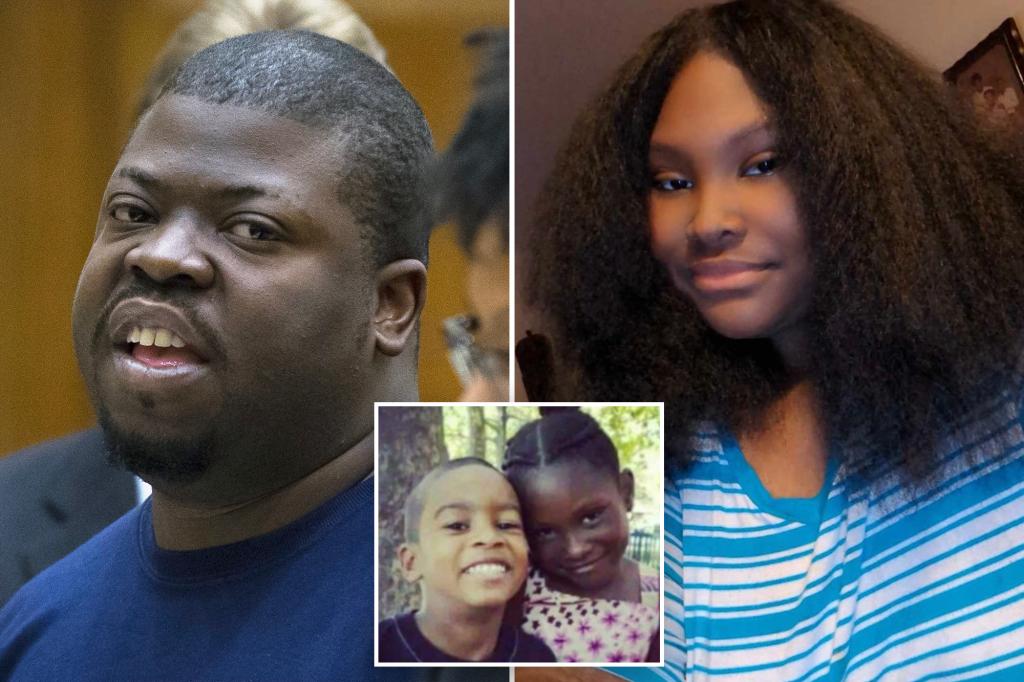The Demise of the "Brooklyn Ripper" and the Lingering Scars of Tragedy
The chilling tale of the "Brooklyn Ripper," Daniel St. Hubert, reached its final chapter in December 2023 with his death within the confines of Green Haven Correctional Facility. St. Hubert, who was serving a life sentence for the brutal stabbing of two young children in 2014, left behind a legacy of pain and trauma that continues to reverberate through the lives of the surviving victim and the families affected by his heinous act. His death, while offering a sense of closure for some, also serves as a stark reminder of the enduring impact of violence and the long road to healing for those left in its wake.
St. Hubert’s reign of terror began in the summer of 2014 in the Boulevard Houses of East New York. Six-year-old Prince Joshua Avitto and his seven-year-old best friend, Mikayla Capers, were on a simple errand for ice cream when their lives were irrevocably altered. Inside the building’s elevator, St. Hubert, a stranger driven by unknown motives, unleashed a frenzied attack, fatally stabbing Prince Joshua and inflicting sixteen wounds upon Mikayla. The senseless brutality of the crime shocked the city and etched St. Hubert’s name into the annals of New York’s darkest history.
Miraculously, Mikayla survived the attack, enduring extensive physical and emotional trauma. Now a 17-year-old college student, she carries the physical and emotional scars of that fateful day. While striving to move forward with her life, the memories of the attack and the visible reminders on her body serve as constant reminders of the horror she endured. The resilience and strength she exhibits in pursuing her education and navigating life are a testament to the human spirit’s capacity to overcome adversity.
The families of the victims, particularly Prince Joshua’s mother, Aricka McClinton, and Mikayla’s great-grandmother and guardian, Regenia Trevathan, have endured unimaginable grief and struggled to find solace in the aftermath of the tragedy. St. Hubert’s death, while offering a measure of closure, does not erase the pain of their loss. For McClinton, it brings a bittersweet sense of peace, allowing her son to finally rest. She reflects on the young man Prince Joshua would have become, a testament to the hopes and dreams shattered by St. Hubert’s violence.
Trevathan expresses gratitude for the outpouring of support that has buoyed their family through the years. She recognizes the importance of Mikayla’s continued healing and her determination to succeed despite the trauma she experienced. The family’s journey underscores the vital role of community support in helping victims of violence navigate the long and arduous path toward recovery.
The circumstances surrounding St. Hubert’s death in prison remain shrouded in mystery. While official details are scant, his passing marks the definitive end to his physical presence in the world. For those affected by his crimes, his death offers a sense of finality, though the emotional and psychological wounds inflicted by his actions will likely continue to heal for years to come. The case serves as a tragic reminder of the devastating consequences of violence and the importance of supporting victims and their families in their pursuit of justice and healing.
The story of the "Brooklyn Ripper" is a grim chapter in New York City’s history. It highlights the fragility of life, the enduring impact of trauma, and the resilience of the human spirit. While the pain of the past may never fully disappear, the families of the victims, particularly Mikayla Capers, embody the power of perseverance and the hope for a future free from the shadow of violence. Their journey serves as an inspiration to us all to cherish life, support those who have suffered, and work towards a world where such tragedies become relics of a bygone era.

